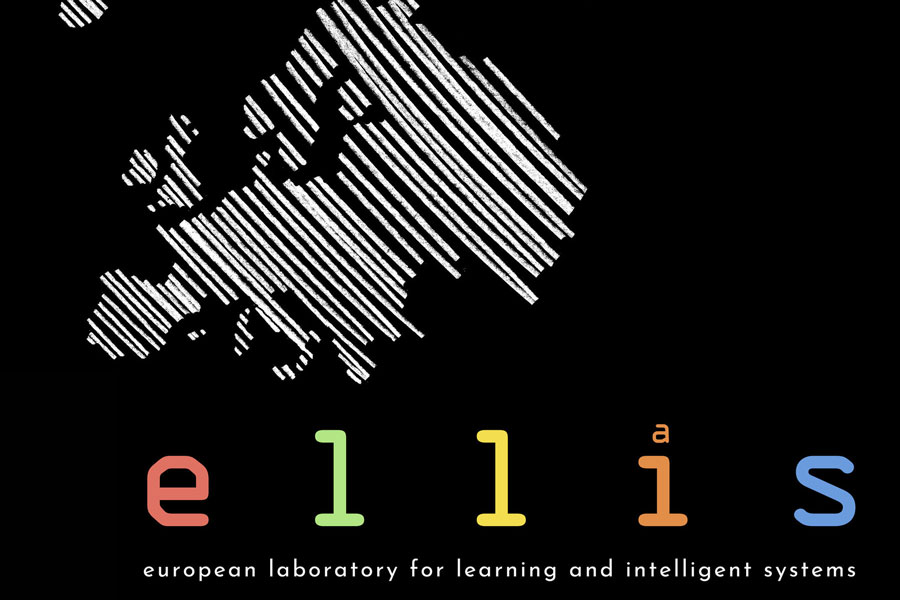ELLIS inaugurates 30 research units at leading institutions across Europe
At a virtual event on Tuesday, the European Laboratory for Learning and Intelligent Systems presented the broad scope of research its units will cover in the field of modern AI.

/CyberValley/ The European Laboratory for Learning and Intelligent Systems (ELLIS) today inaugurated 30 research units at a virtual ceremony. Spanning 14 European countries, the ELLIS network includes several world-class institutions (see a full list of units below). The ELLIS units will make a decisive contribution to> securing Europe’s sovereignty and leadership in the research field of modern AI.
“Today, we celebrate the momentum that the ELLIS initiative has gained since it was founded just two years ago,” said Bernhard Schölkopf, co-founder of ELLIS and Director of the Max Planck Institute for Intelligent Systems in Tübingen, Germany, which will also be home to an ELLIS unit. “Since the first 17 units were announced at the end of 2019, we’ve added 13 more to the network. With their combined strengths, the units will contribute to enabling Europe to compete with the world’s AI hotspots, particularly the US and China. Together, the units are creating new opportunities for collaboration with scientists across Europe, and a strong foundation for developing AI that is in line with the values of open European societies.”
ELLIS is a pan-European effort initiated in 2018. Its central goal is to foster European research excellence in machine learning and related fields by offering scientists outstanding opportunities to carry out their research in Europe, and to train the next generation of young European researchers in this field of strategic importance. It focuses particularly on tackling fundamental research challenges in the field of AI that promote positive economic and societal impacts. At present, research topics within the ELLIS network include fundamental machine learning, computer vision, natural language processing, robotics, human-centric and trustworthy AI, and areas of application such as environmental modeling, autonomous systems design, biology, and health.
The ELLIS units were selected on the basis of scientific excellence by a committee of leading scientists from several different countries. In total, they have committed funding of some 300 million euros for an initial period of five years. Twenty percent of this sum will go toward ELLIS network activities such as student and faculty exchanges and the organization of joint ELLIS research programs and workshops.
ELLIS Units
- Alicante (Nuria Oliver, Foundation ELLIS Unit Alicante)
- Amsterdam (Max Welling, Universität Amsterdam)
- Berlin (Klaus-Robert Müller, TU Berlin)
- Cambridge (Carl Rasmussen, Jose Miguel Hernandez Lobato, University of Cambridge)
- Copenhagen (Ole Winther, University of Copenhagen)
- Darmstadt (Stefan Roth, TU Darmstadt)
- Delft (Robert Babuska, Delft University of Technology)
- Edinburgh (Chris Williams, University of Edinburgh)
- Freiburg (Wolfram Burgard, Universität Freiburg)
- Genoa (Massimiliano Pontil, Lorenzo Rosasco, Italian Institute of Technology and University of Genoa)
- Heidelberg (Oliver Stegle, German Cancer Research Center, EMBL, University of Heidelberg)
- Helsinki (Samuel Kaski, Finnish Center for Artificial Intelligence FCAI, Aalto University)
- Lausanne (Pascal Frossard, EPFL)
- Leuven (Matthew Blaschko, KU Leuven)
- Linz (Sepp Hochreiter, JKU Linz)
- Lissabon (Mario Figueiredo, Instituto Superior Tecnico)
- London (Arthur Gretton, University College London)
- München (Daniel Cremers, Fabian Theis, Massimo Fornasier, TU München, Helmholtz Zentrum München)
- Oxford (Yee Whye Teh, Stephen Roberts, Michael Wooldridge, University of Oxford)
- Paris (Gabriel Peyre, PaRis AI Research Institute, DataIA Institute, Sorbonne Center for Artificial Intelligence)
- Prag (Josef Sivic, Czech Technical University, Czech Institute of Informatics, Robotics and Cybernetics)
- Radboud (Marcel van Gerven, Radboud University Nijmegen)
- Saarbrücken (Bernt Schiele, Max Planck Institute for Informatics, Saarland University)
- Technion (Shie Mannor, Technion – Israel Institute of Technology)
- Tel Aviv (Amir Globerson, Tel Aviv University)
- Turin (Barbara Caputo, Politecnico di Torino)
- Tübingen (Matthias Bethge, Bernhard Schölkopf, Universität Tübingen, Max-Planck- Institut für Intelligente Systeme)
- Unimore (Rita Cucchiara, University of Modena)
- Wien (Christoph Lampert, IST Austria)
- Zürich (Andreas Krause, ETH)




